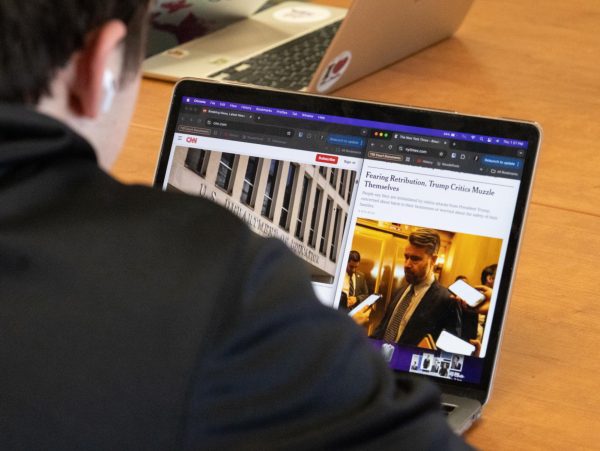Editorial: We deserve the “Right to be Forgotten”
THAT woman. You know the one we’re talking about – the woman with whom Bill Clinton claimed he did not have an affair. You probably know her name, we definitely do. It’s a frequent answer to trivia questions, sometimes being shouted before the question “With whom did President Bill Clinton have an affair?” even finishes. We may even know it better than the name of the 25th president.
You might have noticed that we haven’t written her name yet, and we’re not going to. In fact, we’re going to argue that, if she wants, she should have the right to have her name erased from Internet searches – forever.
As United States Attorney Deb Ireland reminded us on Jan. 11, nothing on the Internet is ever completely erased. The Wayback Machine, a nonprofit organization based in San Francisco, Calif., has archived over 310 billion web pages since its launch in Oct. 2001, saving billions of gigabits of information. In 2010, the United States’ Library of Congress began archiving Twitter’s entire cache of tweets since 2006. If you put it out there, it still exists somewhere.
And it can have devastating consequences.
In 2012, after a friend posted a photo of her jokingly disrespecting a “Silence and Respect” sign at Arlington cemetery, Ms. Lindsey Stone found herself publicly shamed on the web and without job. Though she apologized profusely, when you Google “Lindsey Stone,” the first item that appears is an article titled “The Internet Shaming of Lindsey Stone” from The Guardian, and the first image is the infamous Arlington Cemetery photo.
Stone made a mistake, but should she have to live with public knowledge of that for the rest of her life? Should this always be her legacy?
If she lived in Europe, she might have had other options.
In 2010, the Court of Justice of the European Union (EU) ruled that individuals have the “Right to be Forgotten” on EU Internet searches in cases where information is “inaccurate, inadequate, irrelevant or excessive.” It is important to note that the “Right to be Forgotten” ruling does not erase any information on the Internet, but instead hides specific websites when terms are searched through corporations like Google, making it harder but not impossible to access.
If Stone or “that woman” petitioned for information about themselves to be removed, who knows if the court would have ruled in their favor, but they might have. They were ordinary citizens thrust into the national spotlight
alongside America’s most famous political figures, despite never having run for public office.
Of course there may be mistakes that some people should never be allowed to put behind them, but for everyone else, there should be another option. Although it may be hard to forget some mistakes, we as a society should give people the opportunity to redeem themselves.
Never before have we been so utterly unable to escape the past, to move forward, to start over. This EU decision was the first step, but in society’s ongoing Internet expansion, it cannot be the last.
We are humans, we mess up, but that does not mean it should define our entire lives.







Jane Horizon • Mar 4, 2018 at 9:11 AM
Great article, timely piece and so important! Thanks for writing this.
You should check out this group of people trying to move the US in the right direction:
https://right2remove.us/about/#about